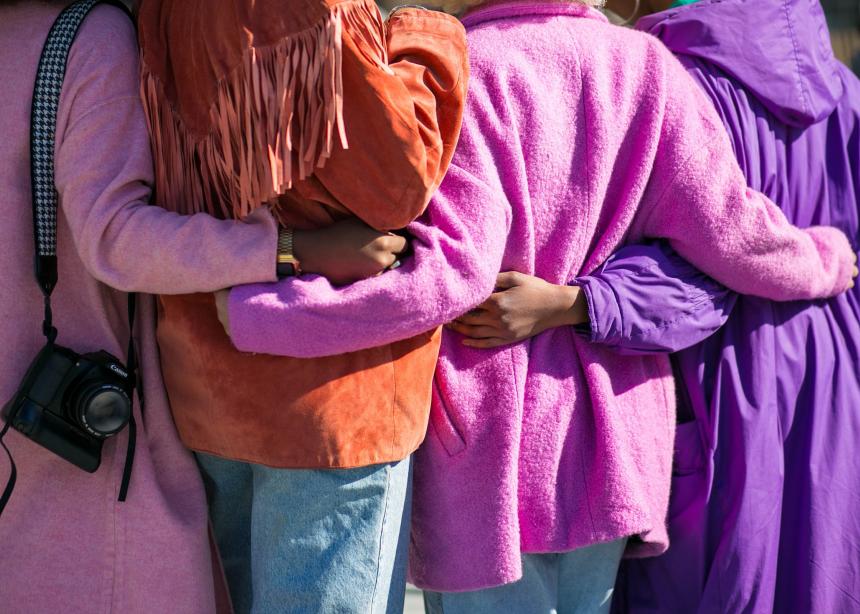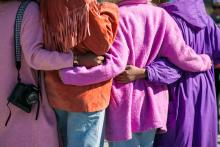In my work with high-risk single mothers, I’ve been meeting one-on-one this summer with women, as our weekly group program was put on hold due to the pandemic. Over and over, I’ve seen the positive effects that a caring community has on individuals and how vastly important it is.
One remarkable woman that I’ve been meeting with was a drug addict for nearly 30 years after a very unstable and unloving childhood. When she told me her story of recovery, she attributed it all to finally having a caring community supporting her.
She moved into a transition home for women who have experienced abuse in intimate relationships and started attending the weekly single-mothers program where I work. The community she gained from these two supportive and interconnected groups was the perfect recipe for her to find the healing and transformation she had longed for.
She strongly feels that, above any specific treatment plan, anti-depressant or other medication, what is needed is a loving community. The constant and caring support she received helped her stay off drugs and parent her child well. She now gives back to her community as an outreach worker in the downtown area.
I’ve also been meeting with several women who have deeply felt the loss of their community during our current COVID-19 pandemic. Some high-risk women, after losing their weekly support and routine, were unable to parent their children. For those living with depression or addiction, the pandemic has been especially devastating. Relying on a community is healthy and necessary, but when those social structures are taken away, as they were during the lockdown, it is catastrophic, especially for those in more vulnerable situations.
One woman told me that she had been working all year to be more social, learning to trust others and to ask for help, and then all of a sudden we are all told to stay away from others! When a supportive community is no longer easily accessible, it is very unsettling and unfortunate.
My work this summer has especially focused on reaching out to the women in our program who have felt isolated and alone. I have met on front steps or backyards of many homes, hoping to offer support and love where there is a lot of loneliness and fear. I have lifted up these women in prayer as I hear their stories and offer guidance and care. We all need to feel connected to people we trust in a safe and caring environment. For many, it has become even harder to find that safe community, and we need it now more than ever.
How can we, as the church, support our families, our friends and those most vulnerable during these challenging and strange times? How can we ensure that no one is forgotten, alone or unsafe? As schools, churches and various programs are reopening, what can we do to help build authentic and safe communities?
Our church has started a program called Family Fusion through which we’ve connected young families/couples/singles with older people in our congregation. The goal is to build meaningful intergenerational relationships within the church and to be a support network for each other. I am excited to see how this helps people feel connected and cared for in creative and life-giving ways.
Many churches are in a stage of restructuring how we gather. As we make plans for this new season, I pray that we put priority on how we can build meaningful community to support and care for one another.
Christina Bartel Barkman, with her four little ones and her pastor husband, seeks to live out Jesus’ creative and loving “third way” options.
Read more Third Way Family columns:
Why ‘third way’?
Learn, love, advocate
Sunday morning on Zoom
Work-play-rest
Thrift shopper, peacebuilder




Add new comment
Canadian Mennonite invites comments and encourages constructive discussion about our content. Actual full names (first and last) are required. Comments are moderated and may be edited. They will not appear online until approved and will be posted during business hours. Some comments may be reproduced in print.